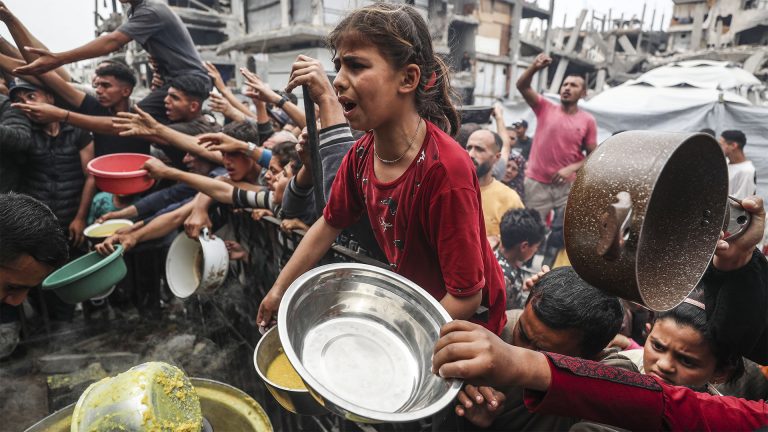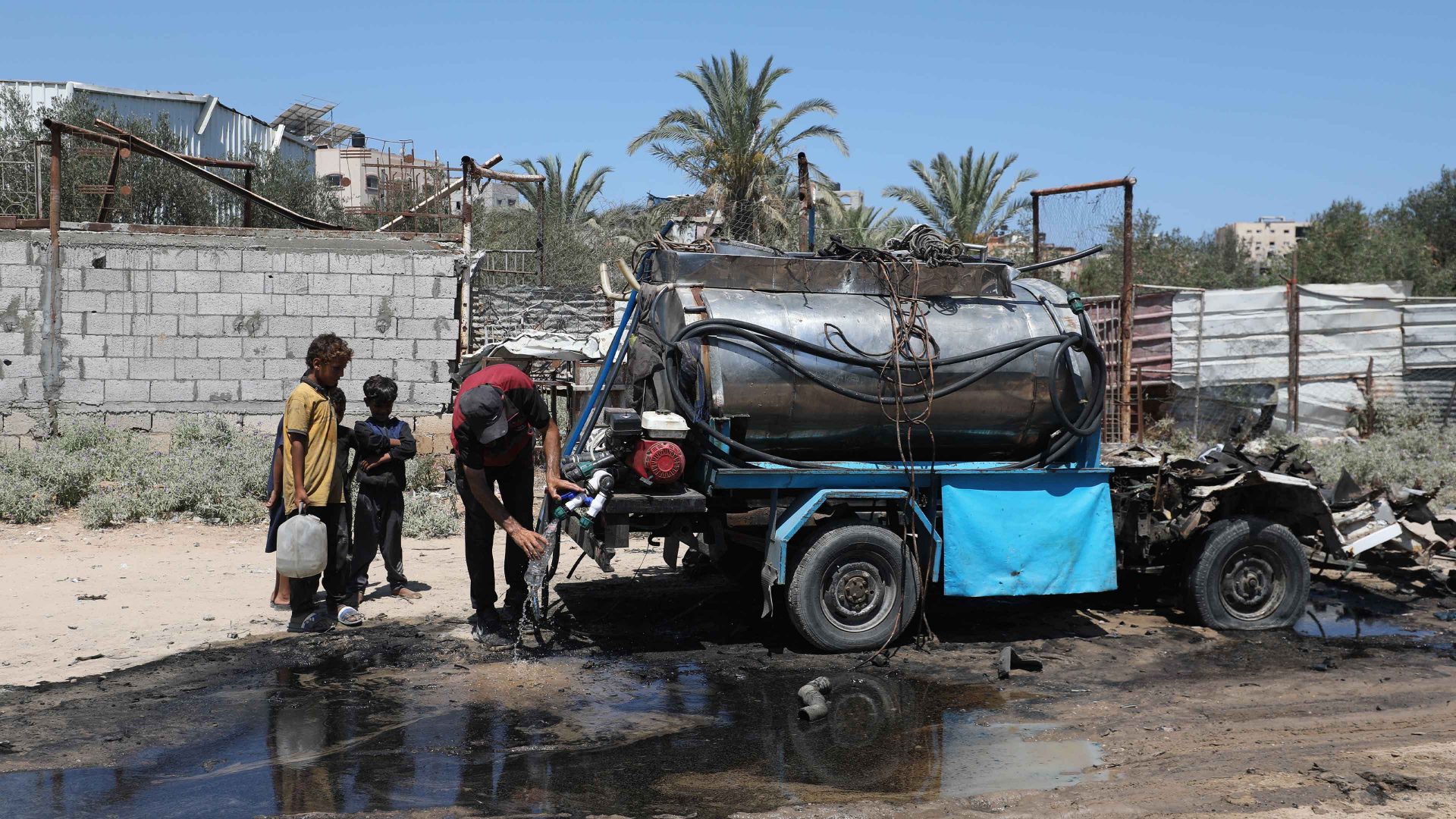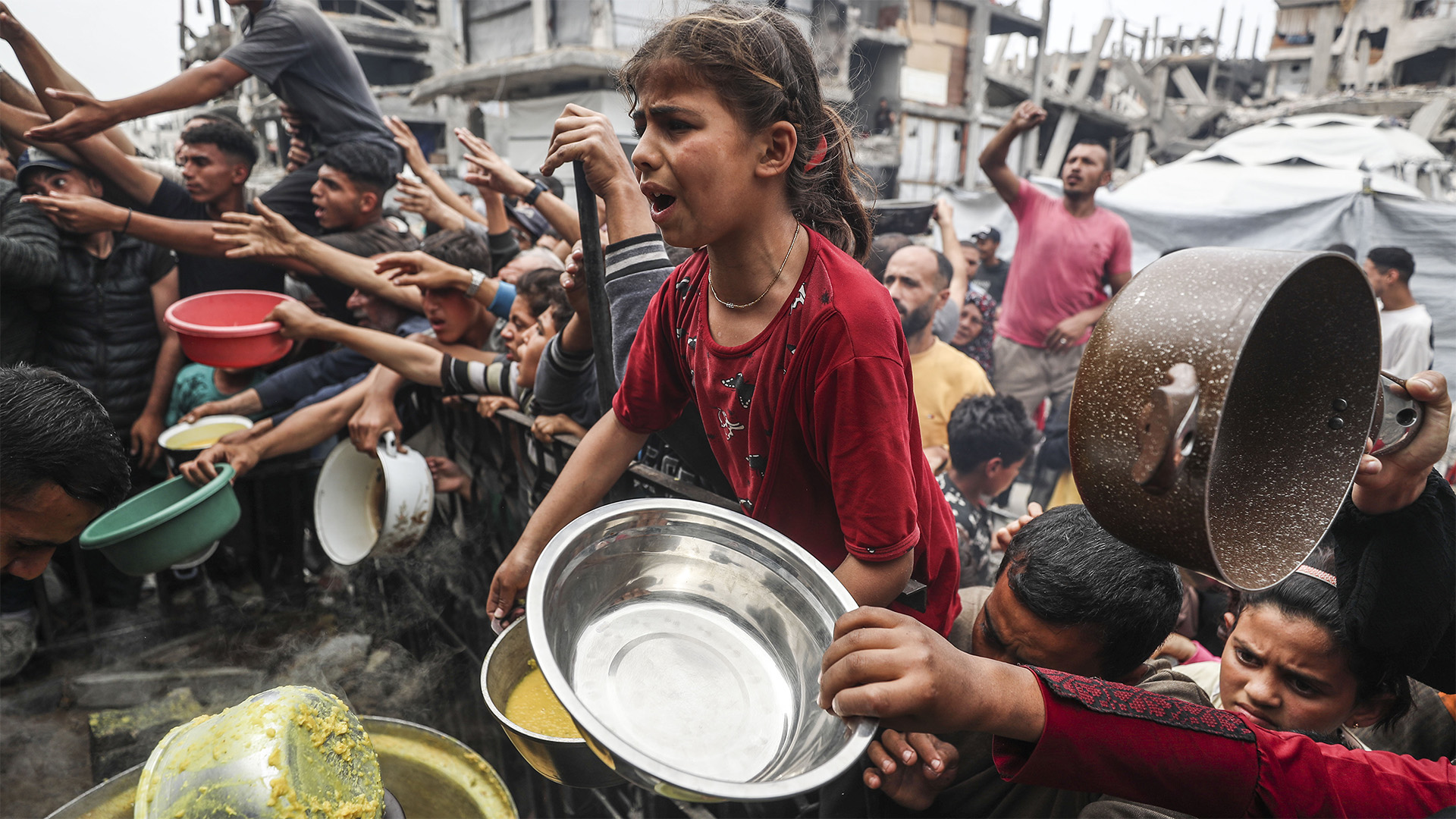Once dreaming of going to university, Mahmoud now faces starvation and airstrikes in Gaza, where survival has replaced every other goal.
Mahmoud is 18. On Monday morning his cousin was blown up in a warehouse while trying to get food for his four young children. In the evening his uncle was killed by a bomb while sitting and talking to his neighbours. Ten others were murdered alongside him.
“He was like a father to me,” Mahmoud says of his uncle. “He taught us so many things and his presence filled our lives with safety. Now he’s gone, amid all this injustice and cruelty for no reason.”
“I’m completely broken.”
Mahmoud’s family have still not been able to retrieve his uncle’s body from the rubble due to heavy bombing and drones in the area.
Before October 7, 2023, Mahmoud had dreams of completing school and heading to university. “I wasn’t missing anything from my life,” Mahmoud says. “We had a nice house. I was like any other person in the world of my age.”
That all changed when Hamas murdered an estimated 1,139 Israelis. Israeli media reports that 50 hostages out of 200 still remain in Hamas captivity.
Like many other Gazans, Mahmoud was in the middle of breakfast with his siblings getting ready for school when an evacuation order was issued telling residents of Gaza City to leave. By the time he and his family left their home in the city’s Shuja’iyya district, the missiles were falling. Carrying their possessions, the family of eight walked for miles down Salah al-Din Street, the north to south highway in the Gaza Strip, to the al-Mawasi humanitarian area in the south.
They stayed in the 16 sq km camp with hundreds of thousands of other Palestinians for 15 months. After a ceasefire came into effect on January 19, 2025, they went home.
Suggested Reading


Yes, it’s a genocide
“My whole neighbourhood was destroyed,” says Mahmoud. “The school where I learned and the house where I lived has been reduced to nothing.”
They lived in tents for three months until April, when the Israeli Defence Force told them to leave again. The family now lives with Mahmoud’s great uncle in a western quarter of Gaza City.
He says life has become much harder since Israel blocked aid deliveries in March. There are starving children, mothers crying and bodies in the street. He claims the bombings have become more frequent and deadly since the end of Israel and Iran’s hostilities.
No one knows how many Gazans have died in 21 months. Palestinian health authorities say approximately 55,000. The London School of Hygiene & Tropical Medicine have said the figures could be higher.
“We try to stay strong day by day despite the fear and ongoing bombing. Drones and missiles have become white noise.”
Four days before his uncle was killed, Mahmoud went to the Nitzarim military checkpoint to get aid. He watched as the IDF opened fire on the crowds of hungry Palestinians, narrowly escaping death himself. His prize? A box of lentils, chickpeas and rice, which will last the family just over a week.
“They almost shot me for getting rice and chickpeas,” Mahmoud says.
UK policy decisions have played a part in this. The High Court has ruled that the government’s decision to export F-35 jet parts to Israel was lawful. And yet, according to YouGov, only 12% of Britons think Israel has responded in a proportionate way to the Hamas attacks.
Mahmoud has managed to get funds through a GoFundMe page. But prices in Gaza are very high. It’s now $100 for a cylinder of gas and $80 for a 1kg bag of sugar. “Even water is becoming harder to get,” says Mahmoud. “Sometimes we have to walk a kilometre with all our containers to get it.”
“If politicians truly wanted to stop this they would,” he continues. “We can’t find any answers for what is happening. It really feels like Israel’s goal is only destruction and ruin, with no mercy or humanity. We don’t know what they intend on achieving.”
“My uncle or cousin never killed anyone. They didn’t deserve death. Two years ago my dream was to finish school. Now it’s to live.”
Jessica Lionnel is a freelance journalist living in Rome




